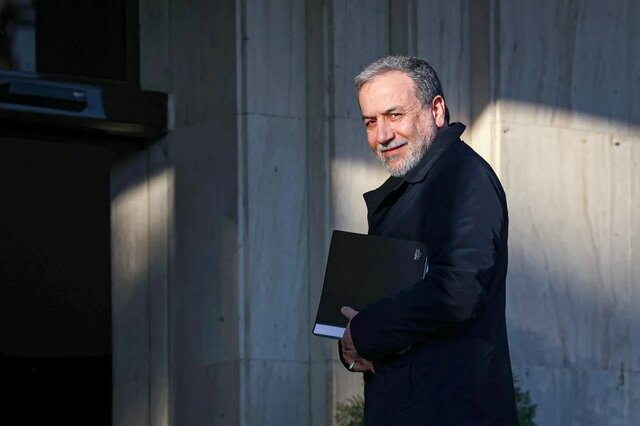Iranian Foreign Minister Abbas Araghchi has arrived in Rome for a second round of talks with US Special Presidential Envoy Steve Witkoff, which will be mediated by Omani Foreign Minister Badr Albusaidi. However, the crucial discussions commence under a cloud of uncertainty fueled by contradictory public statements from senior US officials, prompting Tehran to demand immediate clarification from the American negotiator.
The talks follow an initial round held in Muscat, Oman, which both sides reportedly assessed positively, offering a glimmer of hope for progress. Yet, the intervening period has been marked by jarring shifts in US rhetoric, particularly regarding Iran’s uranium enrichment activities.
Iranian Foreign Ministry Spokesperson Esmail Baghaei set a demanding tone ahead of the Rome meeting. “Given the contradictory positions we have heard from various American officials over the past few days, we expect the American side, as a first step, to explain this and resolve the serious ambiguities created regarding their intentions and seriousness,” Baghaei stated.
He emphasized that progress is contingent on US being realistic. “A step forward is only achievable if the opposing side acts realistically, avoids being influenced by hawkish, warmongering circles, including the Israeli regime, refrains from making unrealistic and unreasonable demands contrary to accepted international rules, and adopts a constructive approach,” Baghaei added.
Witkoff’s reversal and White House echo undermine confidence
The primary source of confusion stems from chief US negotiator Witkoff himself. Shortly after suggesting in a Fox News interview that Iran might be permitted some level of uranium enrichment under a potential agreement, Witkoff appeared to reverse course dramatically in a post on X (formerly Twitter), insisting Iran must eliminate its nuclear enrichment. This harder line was subsequently echoed by the White House spokesperson, solidifying the tougher stance as the administration’s apparent official position.
Adding to the pressure, US Treasury Secretary Scott Bessent recently issued a stark warning on X, reinforcing the “maximum pressure” campaign: “The Trump Administration has made one thing clear: We will apply maximum pressure on Iran and disrupt the regime’s oil supply chain and exports, which support terrorist proxies and partners. Any refinery, company, or broker that chooses to purchase Iranian oil or facilitate Iran’s oil trade places itself at serious risk. We are prepared to take all actions available to get Iran’s energy exports down to zero, where they belong, and keep Americans safe.”
Internal disputes, external pressures, and political sabotage?
Analysts point to several potential factors behind Washington’s inconsistent messaging:
- Internal Administration Divisions: Reports have previously indicated significant disagreements within the Trump administration on the appropriate Iran strategy, potentially pitting officials favoring limited engagement against hardliners demanding complete capitulation.
- Influence of Hardline Critics & Allies: Staunch opponents of any deal with Iran, including influential think tanks, pressure groups, and regional allies like Israel, actively lobby against concessions and may be seeking to box Trump into a more confrontational posture, contrary to his occasional “peace president” rhetoric.
- Domestic Political Maneuvering: Some observers speculate that elements within the US political system, potentially including Democrats wary of granting Trump a foreign policy victory or seeking to preserve the framework of the original JCPOA, might be working subtly to complicate or undermine the current negotiations.
Echoes of past dysfunction
This inconsistency evokes memories of the implementation phase of the 2015 Joint Comprehensive Plan of Action (JCPOA). During that period, conflicting interpretations and actions between the US State Department and the Treasury Department’s Office of Foreign Assets Control (OFAC) often created confusion and hindered the expected economic benefits for Iran, ultimately damaging US credibility as a reliable negotiating partner. The current mixed signals risk repeating that pattern.
Democratic resistance against Trump-led deal
Furthermore, prominent figures from the Obama administration, closely associated with the original JCPOA, have recently voiced skepticism about pathways forward that deviate significantly from that deal. Their recent commentary often raises unrealistic and radical demands or emphasizes the perceived difficulty of achieving verifiable constraints outside the JCPOA’s specific structure or implicitly criticizes the current administration’s approach. While advocating for diplomacy, their framing often suggests that viable alternatives to the JCPOA are limited or fraught with peril, potentially reinforcing Iranian concerns about US intentions and raising the political bar for the Witkoff team. Some analyses suggest a “malign coalition of convenience” – involving traditional hawks and potentially elements resistant to any Trump-led deal – is actively working to portray significant engagement as futile or dangerous.
A precarious path forward
As Minister Araghchi and Envoy Witkoff sit down in Rome, the immediate challenge lies in rebuilding a modicum of trust. Iran’s demand for clarity on US intentions is paramount. Whether the US delegation can present a unified, credible position, free from the oscillations seen publicly and resilient against internal and external pressures, will likely determine if these crucial talks can move beyond procedural clarifications and into substantive negotiation. Failure to do so risks squandering the tentative opening created in Muscat and potentially deepening the existing impasse.






